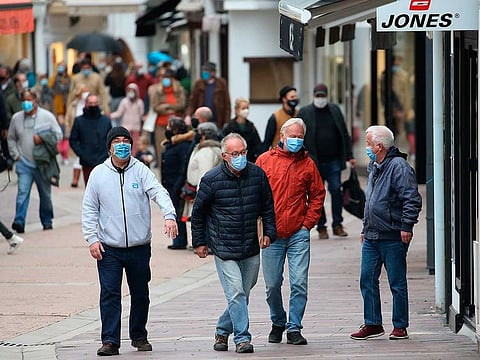COVID-19: France heads into four-week lockdown as virus spirals in Europe
The virus is more contagious and deadlier, says French President Macron

Paris: French President Emmanuel Macron announced a nationwide four-week lockdown, shutting down schools and business, in the latest sign that Europe is yet again losing control of the pandemic.
“We did everything we could to make these decisions as late as possible, until they became strictly necessary, which is now,” Macron warned in an address to the nation on Wednesday. “The virus is more contagious and deadlier.”
He implored people to make an extra effort as the lockdown begins to come into force on Saturday. Restrictions will be flexible this weekend, during the Easter holidays, to allow people to relocate.
It represents a policy reversal for Macron. He had favored a localized approach, and his rejection of advice for stricter measures sooner comes with political risks a year out from presidential elections.
Schools, including nurseries, will shut for three weeks from April 12 to April 26. It was something Macron had wanted to avoid as he had taken great pride in keeping class-rooms going.
Schools open
“We are one of the few countries that kept schools open because we believe in this investment in young people, our young people need to learn and no one knows the long term social and economic consequences the lockdowns will have on them.
He acknowledged mistakes in handling the pandemic, but said the nation was learning from its mistakes.
Macron also laid out a timeline for reopening the country, saying terraces of bars, restaurants and cafes as well as some cultural venues could re-open mid-May for France to rediscover “art de vivre” . That is also when he said people over 50 will be able to get vaccinated.
Earlier in the evening, Italy joined Germany in extending their partial shutdowns well into April. The resurgence in the region’s outbreak is a setback for governments, whose plans to get life back to normal and revive their economies have already been stymied by a sluggish vaccine rollout across the European Union.
Sign up for the Daily Briefing
Get the latest news and updates straight to your inbox









